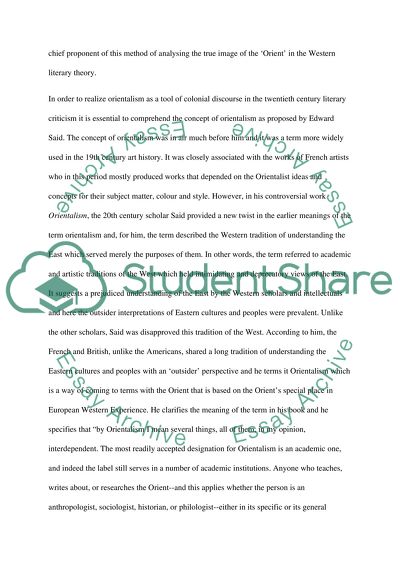Cite this document
(“20th Century Literary Theory:Orientalism as a tool of colonial Essay”, n.d.)
Retrieved from https://studentshare.org/miscellaneous/1505500-20th-century-literary-theoryorientalism-as-a-tool-of-colonial-discourse
Retrieved from https://studentshare.org/miscellaneous/1505500-20th-century-literary-theoryorientalism-as-a-tool-of-colonial-discourse
(20th Century Literary Theory:Orientalism As a Tool of Colonial Essay)
https://studentshare.org/miscellaneous/1505500-20th-century-literary-theoryorientalism-as-a-tool-of-colonial-discourse.
https://studentshare.org/miscellaneous/1505500-20th-century-literary-theoryorientalism-as-a-tool-of-colonial-discourse.
“20th Century Literary Theory:Orientalism As a Tool of Colonial Essay”, n.d. https://studentshare.org/miscellaneous/1505500-20th-century-literary-theoryorientalism-as-a-tool-of-colonial-discourse.


